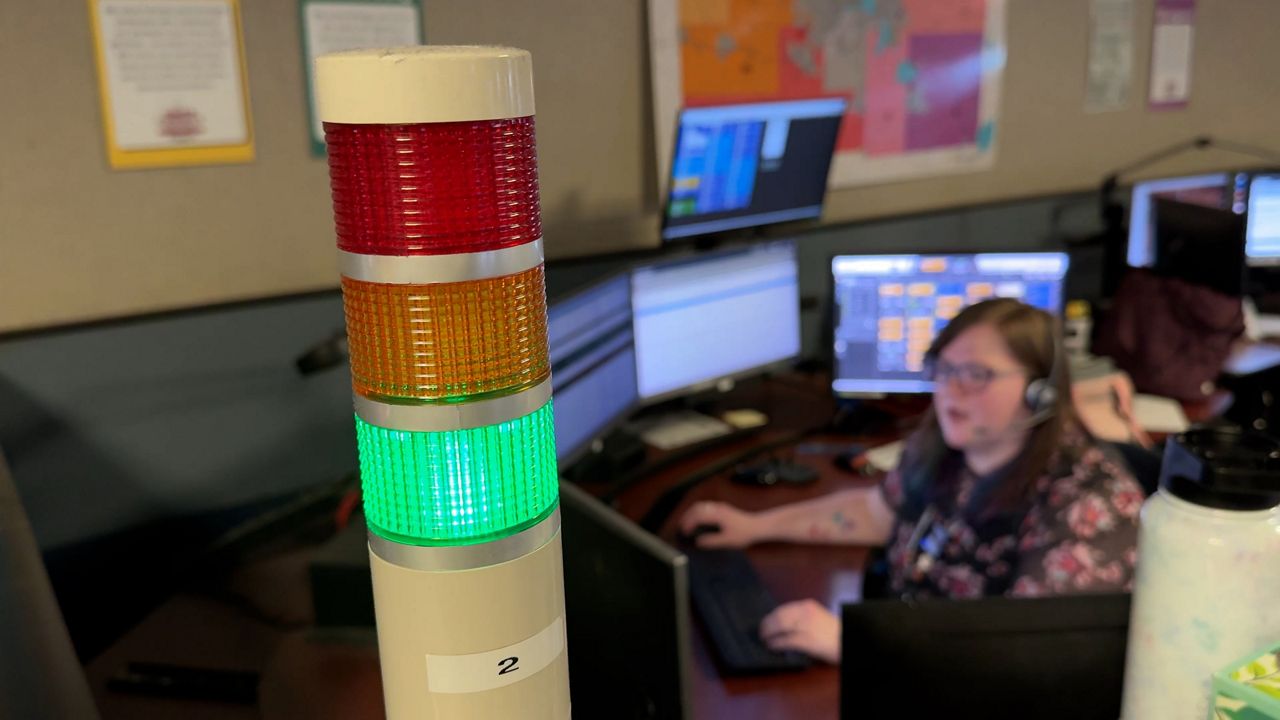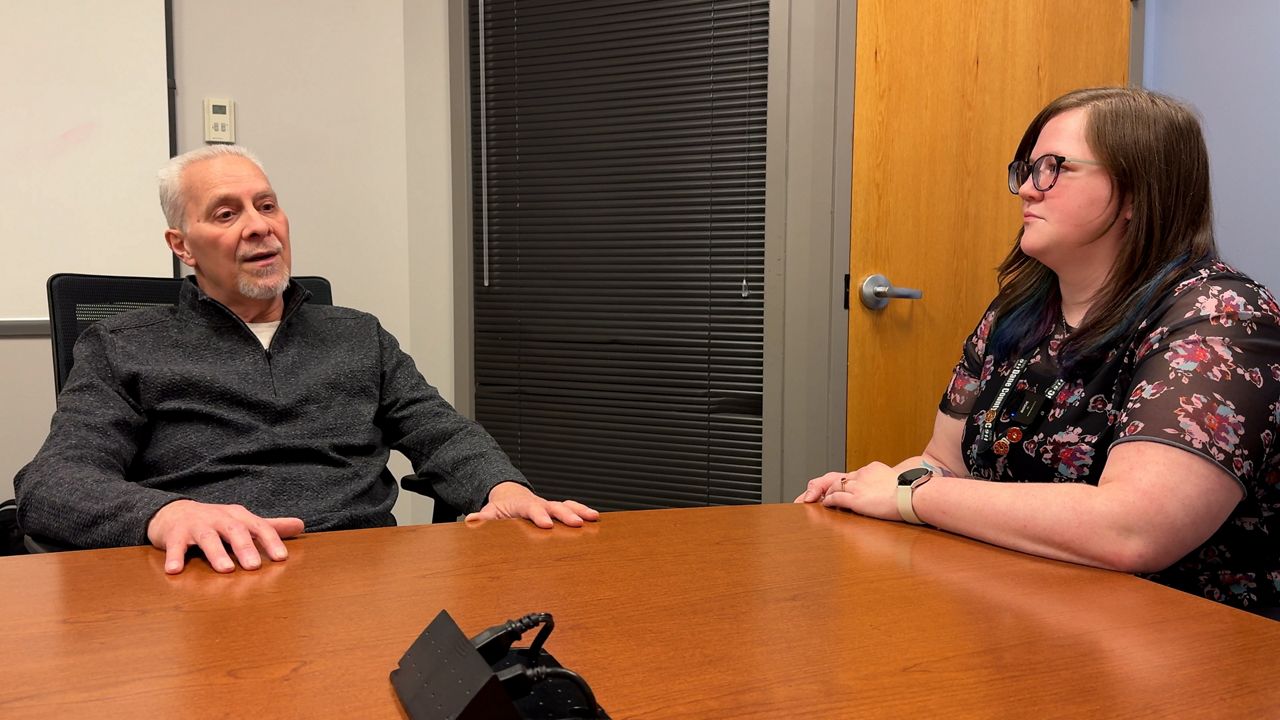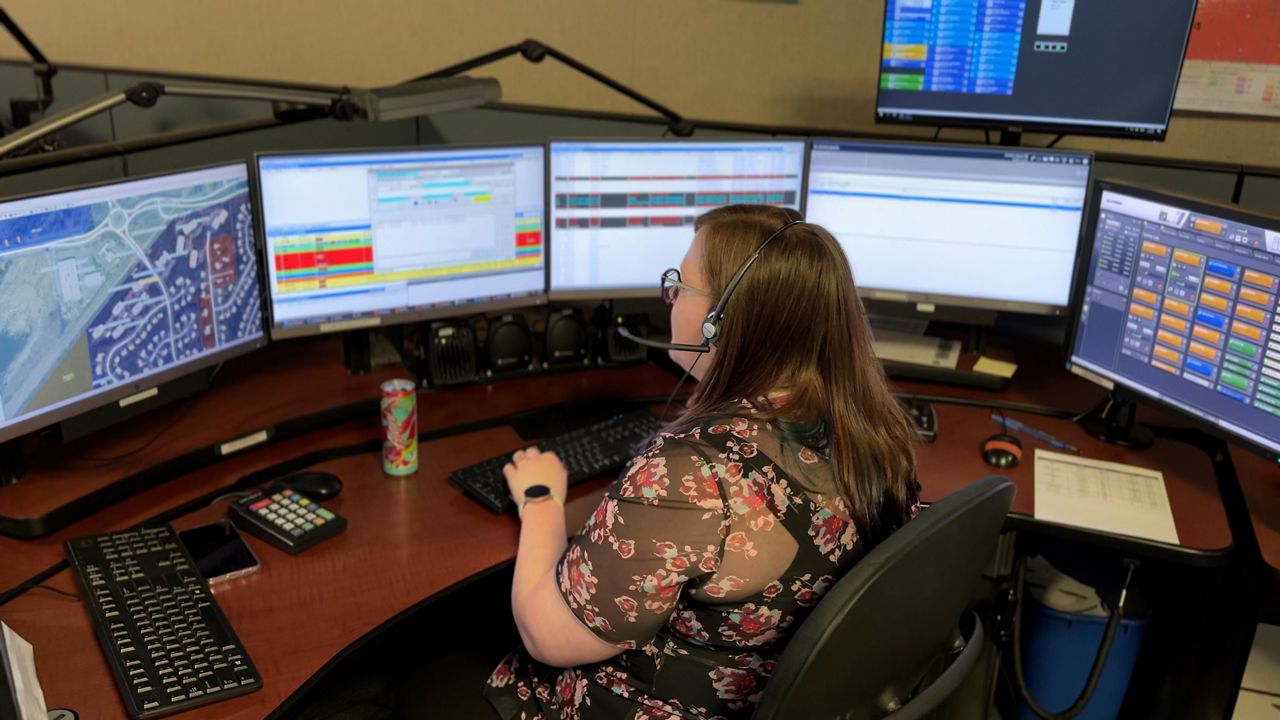MADISON, Wis. — When someone is in a life-or-death situation, frequently the first call they make is to 9-1-1.
Alyssa Gerstner is a communicator at the Dane County 911 Communications Center. Gerstner has been working in a dispatch role for four years.
“I spend about four hours call-taking and four hours at a dispatch spot,” said Gerstner. “Right now, I am taking calls for service, both 911 calls and non-emergency calls that come into the police station themselves.”

She said she never really knows what kind of call she will be taking until she picks up the phone.
“One call could be complaining about your neighbor's trash can being out too soon or having garbage on their porch and the next call you are jumping into CPR, or you are putting pressure on a gunshot wound,” said Gerstner.
No matter what the call is, dispatch workers are often the first to respond. Gerstner said for more traumatic calls, that can be very taxing on workers' mental health.
“We have to hang up the phone at some point and we just move on to the next call and we don’t always get any clarification on what happened,” said Gerstner.
When first responders deal with a traumatic call, Randy Kratzl who is a counselor for FEI Behavioral Health, debriefs everyone who was involved.
“What I refer to those debriefings as is 'psychological first aid.' It is not group therapy; we are not sitting around holding hands and singing kumbaya,” said Kratz.

He said debriefings often take place when cases involve children, pets or if a first responder is injured or killed.
“Putting words to your thoughts, your emotions, your feelings, your reactions to things is good medicine,” said Kratz.
Gerstner said she is grateful for the debriefings because the trauma often starts after the work day is done. But it is not only the debriefings that help her.

She said she is very thankful to be working in Dane County where she has a community of first responders she can reach out to when things get difficult.
”Whether it be someone on shift or someone off shift we lean a lot on each other,” said Gerstner. “I am someone who is a big advocate for mental health awareness and mental health help.”



